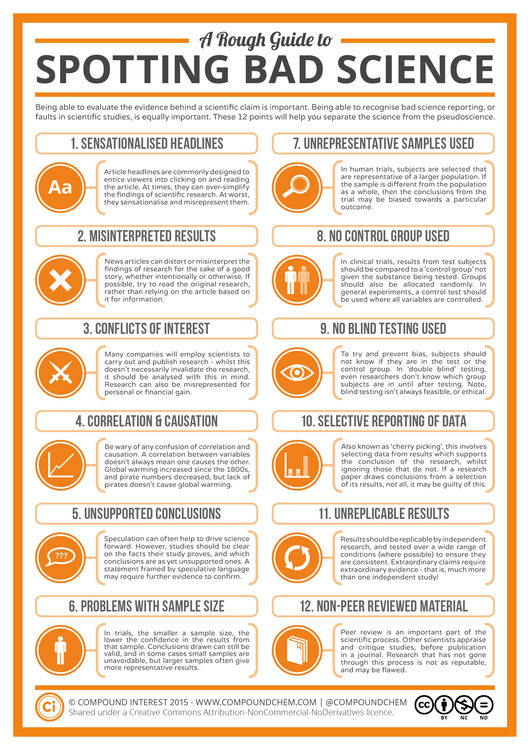A brief detour from chemistry, branching out into science in general today. This graphic looks at the different factors that can contribute towards ‘bad’ science – it was inspired by the research I carried out for the recent aluminium chlorohydrate graphic, where many articles linked the compound to causing breast cancer, referencing scientific research which drew questionable conclusions from their results.
The vast majority of people will get their science news from online news site articles, and rarely delve into the research that the article is based on. Personally, I think it’s therefore important that people are capable of spotting bad scientific methods, or realising when articles are being economical with the conclusions drawn from research, and that’s what this graphic aims to do. Note that this is not a comprehensive overview, nor is it implied that the presence of one of the points noted automatically means that the research should be disregarded. This is merely intended to provide a rough guide to things to be alert to when either reading science articles or evaluating research.






